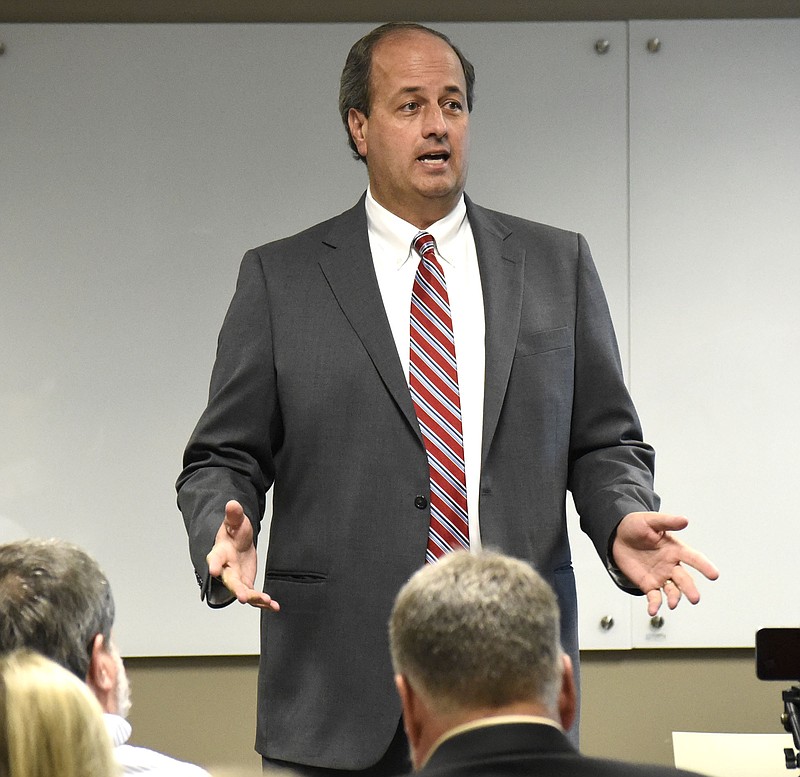Walker County has nearly 700 miles of roadway in the unincorporated areas - and no money in the budget to fix them.
Because of the lack of funds and the growing need for road improvements, a referendum will be added to the ballot in November that, if passed by voters in the county, would raise Walker's sales tax by 1 percent. Similar to the tax county residents pay for education projects, the transportation special local option sales tax would be earmarked for road paving.
The TSPLOST would run for five years, raising the county's sales tax rate from 7 percent to 8 percent.
During a budget hearing Aug. 24, Sole Commissioner Shannon Whitfield said the proposed tax is expected to bring in $3.75 million a year. Of that, the county would keep about $2.5 million and the cities would keep the rest for paving projects and road maintenance.
But beyond that $2.5 million, the TSPLOST would allow the county to access millions more in state funds, Whitfield said. Georgia's Department of Transportation distributes Local Maintenance Improvement Grants each year to the counties in the state, but the money comes with a required 30 percent match for road improvements and repaving.
"Financially, we have close to $1 million of grant money from the state, but we've been unable to spend that because we don't have the 30 percent match to go with it," Whitfield said during a separate commissioner's meeting in August.
The county needs roughly $300,000 in cash to access the LMIG funds, Whitfield explained, but the county has "no rainy day fund" and is currently working on a long-term plan to pay off its roughly $70 million debt and the nearly $10 million it owes Erlanger.
If voters enact the TSPLOST, the tax would go into effect April 1, 2018. LMIG funds are accessible for up to three years before the state rescinds the money, meaning the county wouldn't lose access to the 2017 or 2016 funds, Whitfield said.
According to estimates from the commissioner's office, resurfacing one mile of road costs roughly $100,000.
"If the TSPLOST doesn't pass, we won't be able to pave roads for two years at least," Whitfield said during the Aug. 24 meeting. "If you don't want to put burden on the property taxes, vote for the TSPLOST."
He has yet to release a plan on how exactly the money would be spent and what roads would be prioritized, but has said his administration would put together such a list before the Nov. 7 vote.
Whitfield has also said his administration would generate quarterly reports for citizens to see exactly how much money was raised and what projects the proposed new tax would be funding.
County-specific TSPLOST is a new avenue for Georgia counties to raise money as of 2017. Previously, a regional TSPLOST could be passed, encompassing numerous counties in a single region.
A public referendum for a regional TSPLOST was held in 2012. Whitfield, then just a private citizen, joined the majority of Walker residents in voting against the measure. He has since explained that he was concerned a successful vote would lead to Walker County becoming a "feeder county" for more populous counties in central Georgia in terms of the tax's financial distribution.
While the benefit of the newly proposed TSPLOST would only go to Walker County this time around, it comes at a financially burdensome time. Residents are facing a new special tax district to pay off the county's debt to Erlanger, and a property tax hike of roughly 2 mills, both of which were recently approved.
Email Shane Foley at sfoley@timesfreepress.com.
